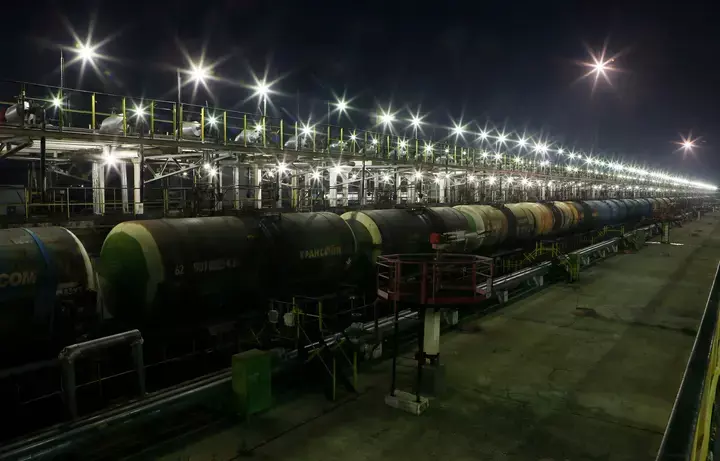UK Intensifies Pressure on Russia with New Sanctions on Oil Companies
The UK government has recently announced new sanctions targeting two major Russian oil companies, Gazprom Neft and PJSC Surgutneftegas. This move, announced on January 10, 2025, is part of the UK’s ongoing efforts to curtail Russia’s ability to fund its war in Ukraine. The sanctions aim to significantly decrease Russia’s energy revenue stream, impacting Putin’s war chest.
Impact of the Sanctions
Gazprom Neft and PJSC Surgutneftegas are significant players in Russia’s oil industry, producing over one million barrels of oil per day. These companies generate approximately $23 billion annually, a substantial portion of which is believed to be funding the Russian war effort. The UK government has highlighted that oil revenues play a crucial role in Russia’s war economy, accounting for roughly a quarter of the country’s budget in 2023.
By imposing sanctions on these major oil companies, the UK aims to significantly reduce Russia’s energy revenue stream. This decrease in revenue is expected to impact Putin’s war chest, potentially hindering Russia’s ability to sustain its military operations in Ukraine.
A Broader Strategy of Pressure
The new sanctions are part of a broader strategy implemented by the UK to pressure the Russian economy and limit Putin’s ability to fund the war. This action complements recent sanctions imposed on 20 additional Russian oil tankers, bringing the total number of sanctioned vessels to 93. This comprehensive approach aims to isolate Russia and limit its capacity to fund the war in Ukraine.
UK Government Statement and Rationale
The UK Foreign Secretary, David Lammy, emphasized the importance of these sanctions in hindering Putin’s war machine and supporting Ukraine. The UK government has stressed its commitment to supporting Ukraine and countering Russia’s aggression. The ultimate goal is to weaken Russia’s war economy, save Ukrainian lives, and contribute to a just and sustainable peace in the region. The UK is working collaboratively with allies, especially the United States, to intensify pressure on Putin and his regime.
The Maritime Industry Perspective
The maritime industry plays a crucial role in the transportation of oil and gas. With the UK’s sanctions on Russian oil tankers, the industry is directly impacted. Maritime companies must navigate the complexities of international sanctions, ensuring compliance while managing their operations. The sanctions may lead to changes in shipping routes, increased scrutiny on vessel operations, and potential disruptions in the global oil supply chain.
Maritime companies should stay informed about the evolving sanctions landscape and implement robust compliance programs. This includes thorough vetting of vessels, careful planning of routes, and ongoing monitoring of regulatory changes. By taking proactive measures, maritime companies can mitigate risks and ensure business continuity.
Conclusion
The UK’s latest sanctions against Gazprom Neft and PJSC Surgutneftegas are a significant escalation in the international effort to isolate Russia and limit its capacity to fund the war in Ukraine. The UK’s actions demonstrate a firm commitment to supporting Ukraine and countering Russian aggression, highlighting a proactive approach to international relations in the face of a major global conflict.
For the maritime industry, these sanctions serve as a reminder of the need to stay informed and adapt to the changing geopolitical landscape. By implementing robust compliance programs and staying abreast of regulatory changes, maritime companies can navigate the complexities of international sanctions and ensure business continuity. The ultimate goal is to contribute to a just and sustainable peace in the region, aligning with the broader international effort to support Ukraine.


Leave a Reply